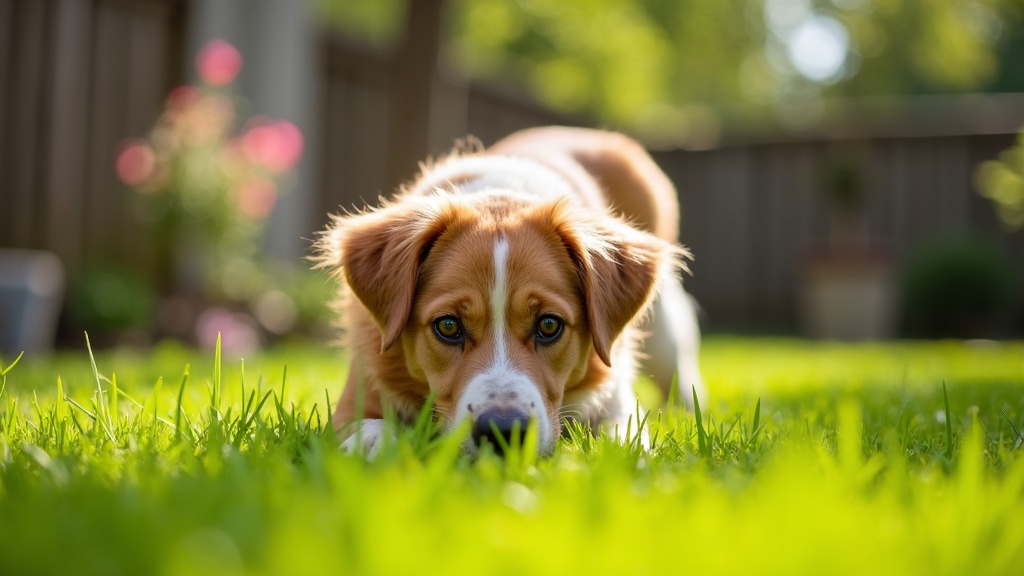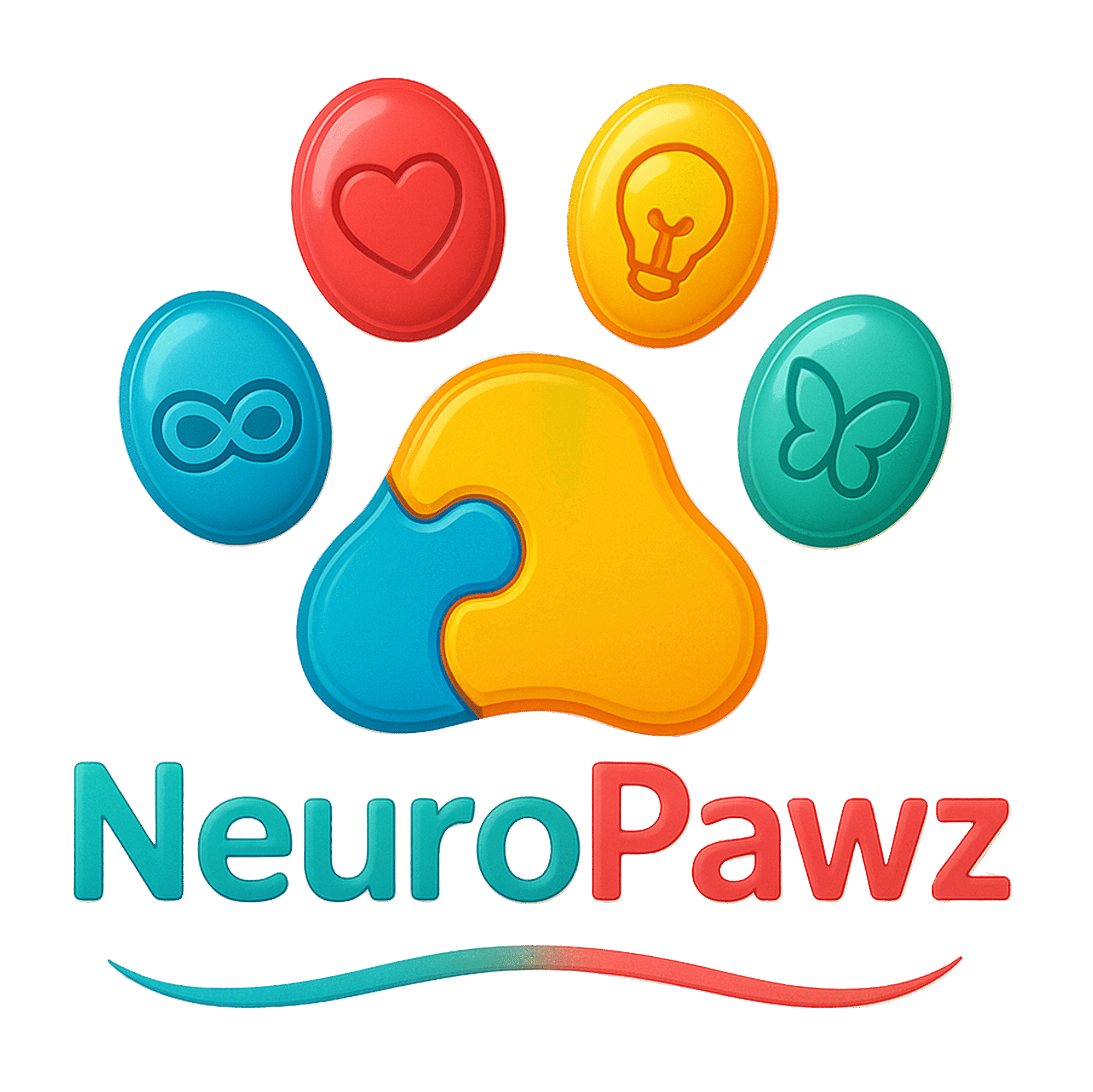If you’ve ever watched your dog chow down on a grassy patch after finishing their meal, you’re not alone. For neurodivergent folks like me, who tend to notice every quirky detail or habit, this can spark a ton of questions. Is my pup missing something in their diet? Are they trying to tell me something? Finding your way through the world of canine behavior is an adventure, and grass-eating is one of those things that stands out, especially after food time. Let’s jump in and check out why dogs munch on grass after meals, what it could mean, and when to check with your vet.

Understanding Grass Eating Habits in Dogs
Dog behavior can be a puzzle, and grass eating is one of the most common oddities I’ve seen. Even dogs who seem perfectly happy and healthy may take a pit stop in the yard to chew on grass, especially right after they’ve finished eating. Some people, especially those with an analytical or curious mindset, pick up on these patterns quickly. If you notice this behavior happening on a routine basis, it’s totally normal to want some answers. Knowing that you’re not alone in wondering about these things is actually pretty reassuring, and that neurodivergent attention to detail can help you spot trends others might overlook.
This grass munching habit isn’t just a problem for your lawn; it’s an age old topic for dog owners, behaviorists, and vets. Dogs are omnivores, so it isn’t weird for them to taste something green occasionally. The questions that usually come up are: is there an underlying health reason, or is it all about curiosity or boredom?
Why Dogs Eat Grass After Meals
Seeing this behavior right after a meal adds another layer to the puzzle. Here are the main ideas people (and scientists) talk about when it comes to dogs eating grass specifically after they eat:
- Digestive relief: Some dogs may use grass to settle a mildly upset stomach. After a meal, if your dog feels a bit too full, they might reach for something fibrous to help things move along.
- Natural instinct: Even domesticated dogs keep some wild behaviors. Wild canines sometimes ate grass as part of consuming the stomach contents of prey. That makes grass eating a possible leftover behavior from their ancestors.
- Dietary needs: While commercial dog food covers the basics, some pups may still seek out extra fiber. Grass is a quick way for a dog to get a small boost in roughage right after their meal.
- Enjoyment or boredom: Dogs are curious. Some just like the taste or texture of certain types of grass, especially after eating. Others do it out of habit or just because it gives them something to do.
It’s common for neurodivergent pet parents to spot exact scenarios or triggers. Maybe your dog only grabs grass after a certain type of meal, or only at specific times of day. Those details help you figure out motivations more easily. Sometimes, the habit goes unnoticed until someone points it out, but people who love to dig into behavioral patterns likely make the connection quickly. When you pay close attention, you’re more likely to spot if your dog is after a particular plant or only acts this way during seasonal changes. Such details can make your log even more useful for your vet.
Is Eating Grass After a Meal Harmful to Dogs?
Most of the time, chewing on grass isn’t a reason to panic. The big concern shows up when dogs eat grass and then vomit, or if they’re obsessively eating grass very often. I’ve seen dogs munch on grass and carry on with their day like nothing happened. According to the American Kennel Club and lots of veterinary sources, occasional grass eating isn’t usually dangerous unless pesticides or toxic plants are involved. If you live in a neighborhood where lawns and parks are often treated with chemicals, it’s always a good idea to keep an eye on where your dog is grazing so you don’t have to worry about accidental poisoning.
If you notice any of these things, it’s worth bringing up with your vet:
- Vomiting after eating grass, especially if it happens frequently
- Grass eating paired with diarrhea, lethargy, or loss of appetite
- Compulsive, frantic, or sudden new grass eating behavior
It can be easy for neurodivergent pet owners to worry about every pattern. Trust me, I know how it feels to track and record every behavior. Still, a log of when, where, and how much grass your dog is eating can help your vet decide if there’s something more to explore. Being able to pinpoint if your dog switches up their routine to seek out grass after bigger meals, or only nibbles grass when they’re under stress, could offer insight about underlying problems.
Possible Health or Dietary Reasons
Sometimes, grass eating right after meals connects to something physical or nutritional that deserves a closer look. Let’s break down a few key causes:
Seeking Fiber
Most commercial dog foods include fiber, but some formulas are very low in it. Dogs who aren’t getting enough fiber can start seeking it out. Since grass is pretty much pure fiber, your dog might be following their instinct after a big meal. If your pup’s stools are hard or infrequent, this might signal a dietary gap.
Digestive Upset
If your pup is eating too quickly or eating foods that are hard to digest, they might feel mild discomfort. Dogs lack the language to tell us about an upset belly, so grabbing some grass is an easy way for them to self-soothe. If your dog eats super fast, slow feeder bowls or dividing up meals could help reduce any urge to eat grass.
Behavioral Patterns
Boredom, habit, or even anxiety can prompt this. For neurodivergent folks who track every routine, noticing if your dog chews grass only when left alone, or after big changes in the home, can help make sense of whether it’s a physical or behavioral response. Having a routine, keeping your dog busy, and ensuring enough social time can make a difference. Sometimes, after a busy day or lots of excitement, dogs seek out grass as a way to wind down, much like a self-comfort behavior. The key is knowing what’s a regular moment versus something that looks like compulsion.
How to Respond if Your Dog Eats Grass After Meals
Deciding what to do depends a lot on your observations and your dog’s unique habits.
- Check for health issues: If grass eating is a sudden change in behavior alongside vomiting or distress, schedule a check up. Health changes can happen quickly, especially in older dogs or pets with sensory sensitivities.
- Review their diet: Look for fiber levels and ingredient quality in your dog’s food. If you’re feeding mostly kibble with little dietary fiber, adding veggies like steamed carrots or green beans (approved by your vet) may help. Also, rotating proteins or blends could give your dog’s gut a boost.
- Offer mental stimulation: Boredom is a real thing for dogs who don’t get enough exercise or enrichment. Puzzle toys, training sessions, or scent games after meals can redirect their focus away from the backyard buffet. This is especially useful if your dog acts restless or seems to look for activity after eating.
- Keep your lawn safe: Skip pesticides and harsh fertilizers in areas where your dog likes to graze. If you have a garden, be sure to plant only pet safe varieties.
- Track patterns: Keep a simple log, even just a phone note, of how often, when, and what else is going on when your dog eats grass. This is especially useful if you’re a detail oriented or neurodivergent pet parent who tracks routine to spot changes quickly.
As a dog owner who likes to keep a close eye on details, I find pattern tracking not only reduces stress but helps solve little mysteries before they become bigger problems. If you’re already tracking walks, meals, or other habits, it’s an easy thing to add.
Common Questions about Post Meal Grass Eating
I get these questions from other pet parents all the time. Here are some quick answers that might help:
Is it normal for my dog to eat grass after eating?
Yes. Dogs are naturally inclined to sample plants, and eating grass after a meal isn’t unusual unless it’s suddenly out of character or paired with illness.
Could grass eating mean my dog’s diet is lacking?
Sometimes. If your dog’s food isn’t well balanced, they might be searching for missing nutrients or fiber. Double check your dog’s food label or check with your vet for advice on food options.
Should I be worried if my dog throws up after eating grass?
If it only happens rarely and your dog is otherwise acting normal, it’s probably not a big deal. If it happens regularly, or there are other health changes, talk to your vet.
Can I stop my dog from eating grass?
You can try, but sometimes it’s a harmless habit. Making sure your dog is well fed, mentally stimulated, and supervised outdoors will help curb the need. If you’re neurodivergent and good at sticking with routines, consistent redirection usually works best.
Also, try integrating more play time after meals or using interactive feeders to slow down meal time, which may reduce post meal grass interest. For dogs needing a boost in stimulation, daily “sniffari” walks give them plenty of scent work to burn off energy.
Practical Strategies for Dogs Who Love Grass
Here are a few things I use with my own grass loving dog:
- Leash walks after meals: Instead of letting my dog straight into the yard, we take a quick walk together. This burns off energy and keeps focus away from grass. Combining walks with light training or social check ins with neighbors can be a win for both you and your pup.
- Toys or chew options: Safe chews or interactive toys after eating offer a distraction and serve the same chewing need some dogs satisfy with grass. If your dog loves a particular flavor or shape, rotate these options to keep interest high.
- Yard swaps: I keep safe patches of untreated grass available, just in case my dog wants to taste test. It helps me monitor exactly what she’s eating and gives peace of mind that there’s nothing harmful in her snack zone.
Noticing the specifics of when, where, and how your dog is acting will pay off, especially for neurodivergent folks who lean into routine and data tracking for peace of mind. Adding extra time for sniffing or giving dogs permission to safely investigate their surroundings can help satisfy curiosity without overindulging the grass habit.
Final Thoughts
Watching your dog eat grass right after a meal can feel a bit weird, but it’s typically a popular and harmless behavior. Trusting your own instincts, especially if you’re a pet parent who spots patterns or sensory cues easily, means you’ll quickly catch if something’s actually off. As long as grass eating isn’t causing sickness or disrupting your dog’s normal routine, it’s usually nothing to stress over. Keeping an eye on things, making small changes if needed, and talking with your vet when there’s a noticeable switch up will keep both you and your furry friend feeling more at ease. For anyone who likes to track details or routines—a common neurodivergent trait—your insights might just make you your dog’s best advocate. With a little observation and care, you can both continue enjoying your routines while keeping your dog happy and healthy. That’s an adventure worth sharing!
